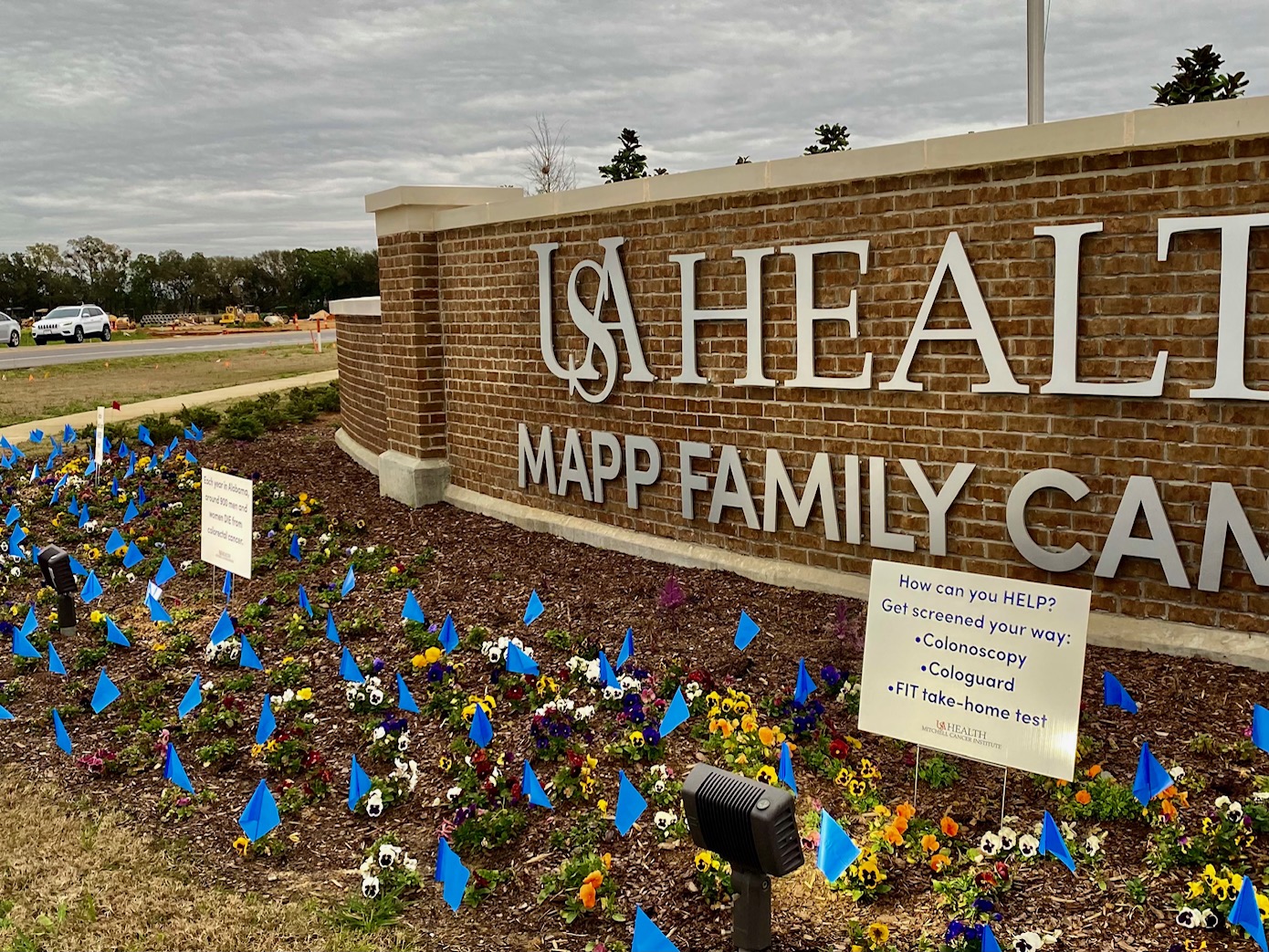USA Health ‘goes blue’ for colorectal cancer awareness
MOBILE, Ala. – Hundreds of small blue flags dot the landscape at several USA Health locations, including University Hospital, the Mitchell Cancer Institute, Providence Hospital, University Commons and the Mapp Family Campus. They are part of USA Health’s campaign to “go blue” during March to create awareness about colorectal cancer and the need for screening.
“Approximately 3,000 Alabamians will be diagnosed with colon cancer in 2024, and sadly, it is estimated that 900 Alabamians will die from colon cancer this year,” said Janel Lowman, M.H.A., senior manager of community outreach at the Mitchell Cancer Institute. “That’s why USA Health is going blue in March – to create awareness and recognize those who are no longer with us.”
A 2024 report from the American Cancer Society shows a troubling trend: Colorectal cancer is now the deadliest type of cancer in men under 50 and the second leading cause of cancer deaths in women under 50 in the United States. The uptick in cases among younger people in recent years has prompted the U.S. Preventive Services Task Force to lower the recommended age for colorectal cancer screening from 50 to 45.
Physicians say it’s unclear what is driving the increase in cases among younger people. “We’ve been seeing it anecdotally over the last decade or so,” said John D. Hunter III, M.D., FACS, FASCRS, a colorectal surgeon at USA Health and an associate professor of surgery at the Frederick P. Whiddon College of Medicine. “Some studies may point to obesity or a sedentary lifestyle, but we’re also seeing a lot of young, healthy people diagnosed with colon cancer. That may point to other environmental factors.”
The recommended age for colorectal cancer screening is 45 for those at average risk, but it may be even earlier for others. “If you have a family history of colon cancer or a history of Crohn’s Disease or inflammatory bowel disease, you may need to get your screening before 45,” Hunter said.
One screening option is a colonoscopy, an outpatient procedure in which a patient is sedated, and a gastroenterologist uses a long flexible tube and tiny camera to examine the inside of the large intestine. During the procedure, abnormal tissue can be biopsied and precancerous polyps can be removed.
Another option is an at-home stool test, recommended for people of average risk. This test uses a stool sample to look for DNA changes in cells that indicate cancer or pre-cancer. It also tests for signs of blood in the stool. However, if the test is positive, Hunter said, the patient will still need a colonoscopy.
“Which test to choose is a personalized decision to be made with your doctor,” he said. “There are lot of ways to start the process, but the most important thing is to start.”
In the meantime, it’s important for people of all ages to recognize the symptoms of colorectal cancer. These include red or black blood in the stool, unexplained weight loss or a change in bowel habits that lasts for more than a few days.
For more information about colorectal cancer screening, contact your primary care provider or the USA Health Digestive Health Center at 251-660-5555.

Stay Connected
Fill out and submit the form below to get regular updates from Mobile Chamber delivered directly to your inbox.






